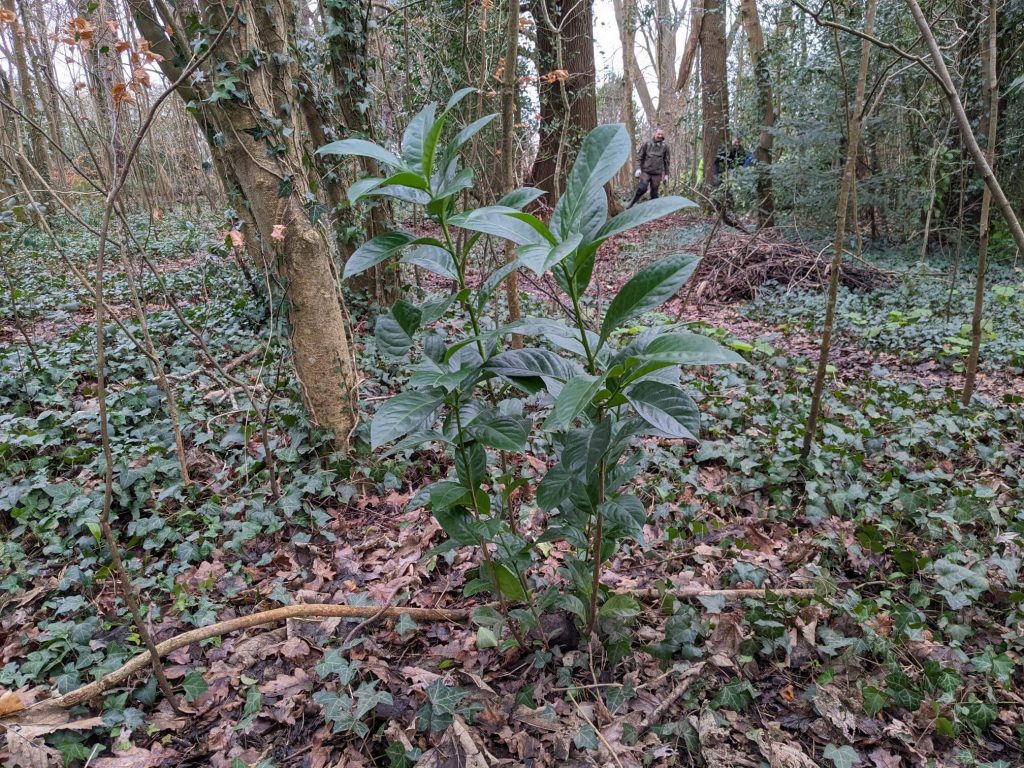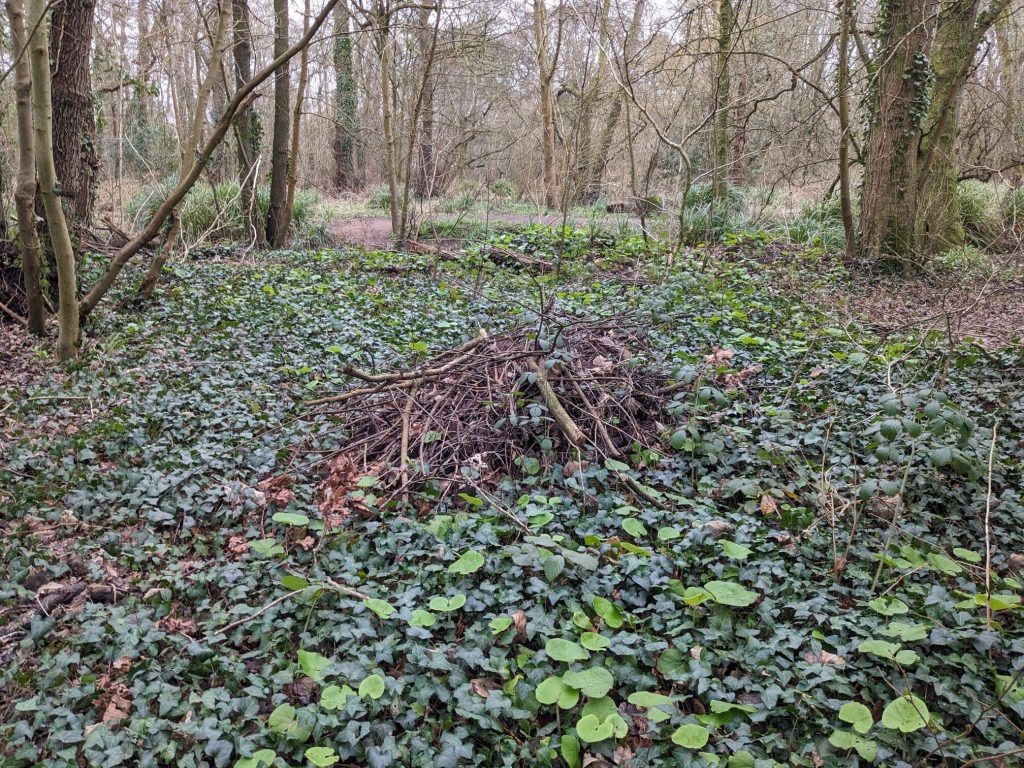There are calls for more volunteers to tackle a “highly invasive” and fast-growing plant which is causing issues in parks across Wales.
Volunteers from The Wildlife Trust gathered in Roath Park on Tuesday to help remove cherry laurel from a wooded area. The evergreen plant is a non-native species – similar to the rhododendron – that can block out sunlight from native plants such as wild garlic.
Cherry laurel grows rapidly and is often found in woodland and hedgerows. The leaves and the sap that runs through the stem is toxic, meaning that it is not eaten by native wildlife. The chemicals it produces also make it difficult for plants to grow nearby.

There are 2,367 sites across Wales where the presence of cherry laurel has been recorded.
Organiser Alex Griffiths, from The Wildlife Trust of South and West Wales said: “It’s definitely a very big problem in Cardiff. It’s an ornamental plant – we tend to find it a lot in close proximity to ornamental gardens or in cities.

“It’s such a big issue and it’s a continuous one, so we have to be here quite often. We’re always up for more volunteers getting involved, either through the Wildlife Trust or through the Council rangers – the more people we get, the more boots on the ground, the easier it is to tackle this issue.”
Cherry laurel is indigenous to south west Asia and parts of south eastern Europe. It is spread by birds through the seeds in their droppings. It can grow up to eight metres high and is able to spread laterally along branches.

Alex’s group also tackles other invasive plant species such as Himalayan balsam which was introduced to the UK in 1839 as a garden plant but soon escaped and is particularly prevalent near rivers.
For Lauren Turner, an environmental management student at the University of the West of England, the volunteering was a new experience.

She said: “You learn [environmental management] in the classroom but a lot of it is just reading from a book or listening to a lecture [but] this module is work-based learning so you actually go into placement and figure out how you want to learn best.”
Rob Pickford, who has been involved in conservation work for a decade, said that he enjoys practical work such as clearing laurel because it makes a difference to the diversity of natural life in Cardiff.
He said: “If we can get the [cherry laurel] cut back now, it should be cut back for Spring which means it won’t disturb any nesting birds that live in these woods.”

